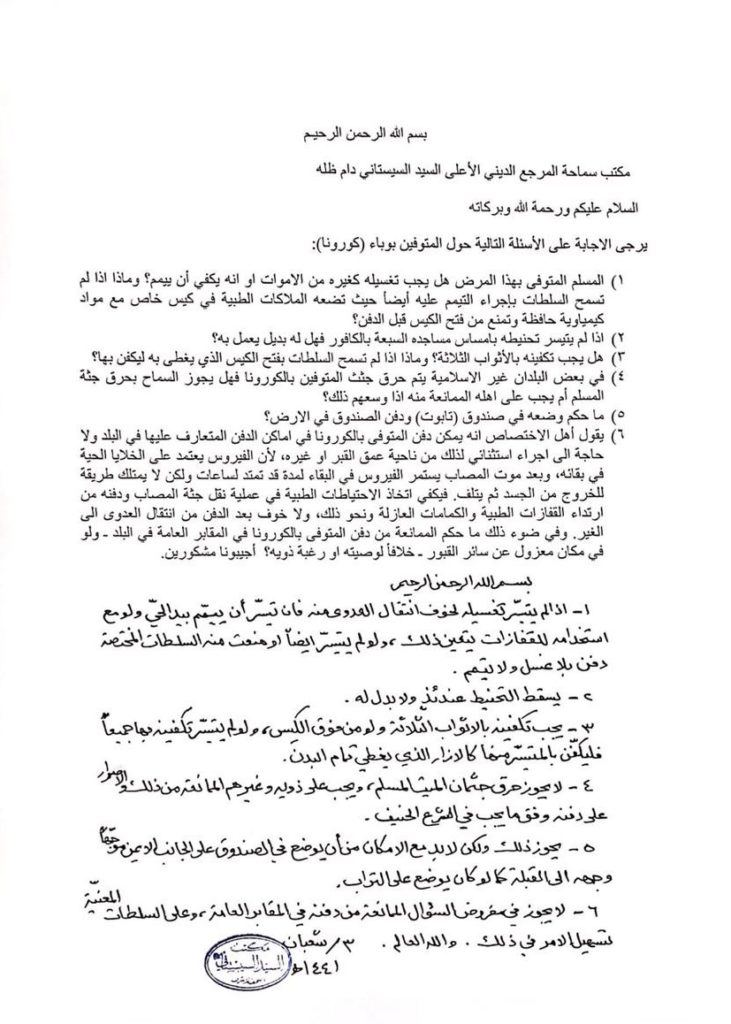In The Name of Allah The Beneficent The Merciful
To the office of the Grand Religious Authority his Eminence Al-Sayed Al-Sistani (may Allah prolong his life),
Assalamu ‘alykum wa rahmat’llahi wa barakatuh
What if the authorities do not allow the tayammum to take place, as the medical staff put the body in a special bag with preservatives and prevent us from opening the bag before the
burial?
A.1 If it is not possible to wash the body due to fear of infection, then a dry ritual purification (tayammum) can performed instead even if the believer is wearing gloves.
If the authorities do not allow the tayammum to be performed, then the deceased Muslim can be buried without ghusl or tayammum.
A.2 In this case, embalming is no longer required and there is no alternative.
A.3 The body must be shrouded using the three garments, even if it is on top of the bag. But if it is not possible to shroud the body with all three garments then it is enough to shroud it using the ones available, such as the Azar, which covers the entire body.
A.4 It is not permissible to cremate the body of a deceased Muslim. His relatives and other family members must prevent that and insist on burying the body according to what is required in the true Sharia.
A.5 It is permissible, but it is necessary if possible, to place the body on its right side and to turn his face towards the qiblah, as it would be if it was buried without a coffin.
A.6 It is not permissible to refuse the burial of the body in public cemeteries, and the authorities in charge should facilitate this matter.
The Office of Al-Sayed Al-Sistani
The Holy City of Najaf
Sha’ban 3, 1441 A.H.

